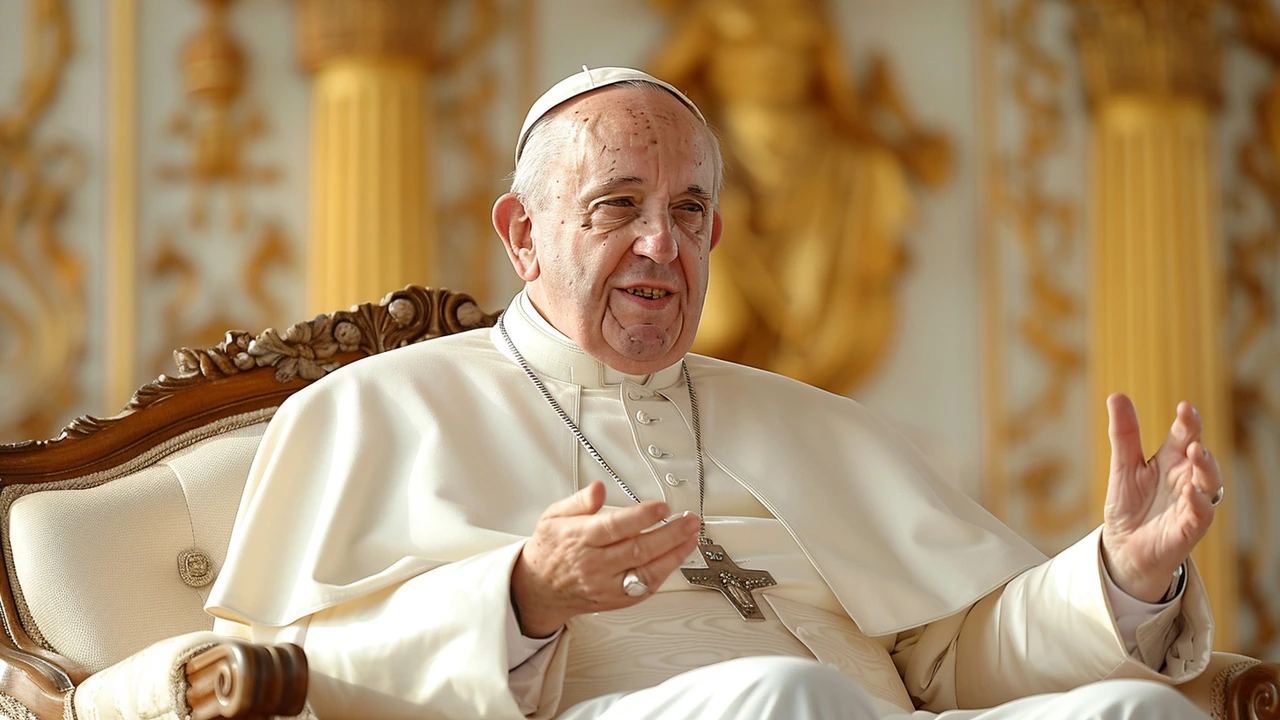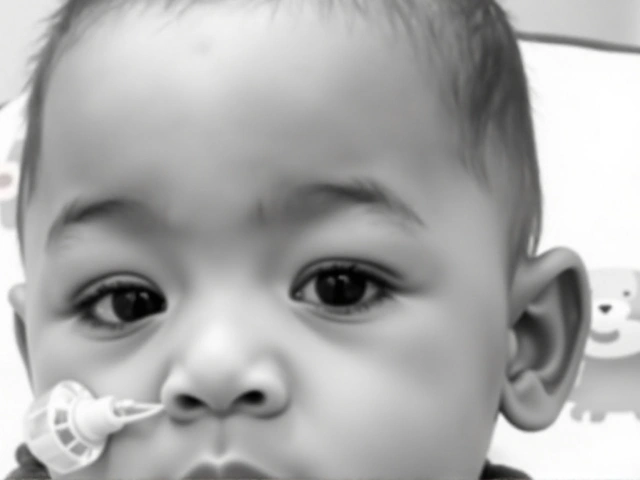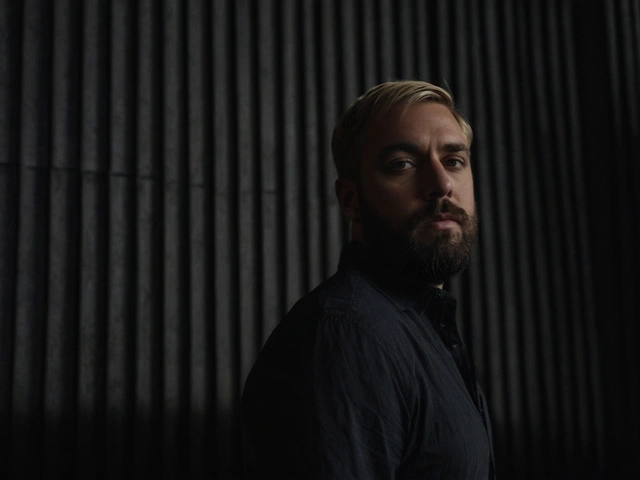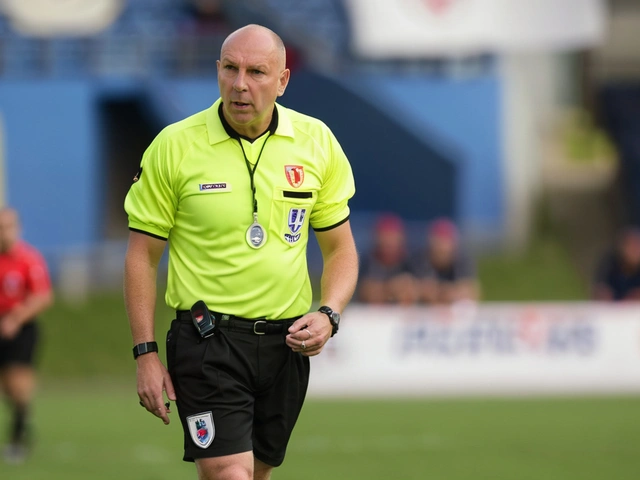Pope Francis Apologizes After Using Offensive Term for Homosexuals

Pope Francis Apologizes After Using Offensive Term for Homosexuals
Pope Francis recently found himself at the center of controversy after using a derogatory term for homosexuals during a conversation. The Pope used the term 'zitel,' a dialectical word in some parts of Italy that is equivalent to the English slur 'faggot.' This incident occurred while he was discussing the role of women within the Catholic Church, sparking immediate backlash from the LGBTQ+ community and their allies.
The term 'zitel' carries a deeply offensive connotation, and its usage by such a prominent religious figure added fuel to an already heated debate surrounding the Catholic Church’s position on LGBTQ+ issues. Many within and outside the Church denounced the language used, demanding a formal apology. In response, the Vatican quickly issued a statement expressing regret for the offense caused. The statement highlighted Pope Francis's commitment to inclusivity and respect for all individuals, regardless of their sexual orientation.
This apology is significant as it comes at a time when the Catholic Church is under intense scrutiny regarding its stance on LGBTQ+ rights. Just recently, a Vatican document described homosexuality as 'a grave sin,' inciting protests and calls for reform. LGBTQ+ advocacy groups and many within the Church have voiced their dissatisfaction with the Church's teachings, calling for a more progressive and accepting approach.
The Pope’s apology is seen by some as a step in the right direction towards greater understanding and acceptance. However, many believe that more substantive changes are needed. Reverend James Martin, a Jesuit priest and advocate for LGBTQ+ rights within the Church, stated that words are important, but actions speak louder. He emphasized the need for concrete changes in the Church’s policies and teachings to reflect a more inclusive and loving stance towards the LGBTQ+ community.
The Impact of Words
Words hold immense power, especially when spoken by influential leaders. In the case of Pope Francis, his words resonate not just among the 1.3 billion Catholics globally but also with the wider public. The term 'zitel' is a reminder of the hurtful and discriminatory language that has historically been used against LGBTQ+ individuals. Such language perpetuates stigma and can have damaging effects on mental health and well-being.
According to a study conducted by the American Psychological Association, LGBTQ+ individuals who experience discrimination and verbal harassment are at a higher risk for mental health issues, including depression and anxiety. This underscores the importance of using inclusive and respectful language, particularly by leaders who have the power to influence societal attitudes and norms.
Pope Francis has been viewed by many as a more progressive leader compared to his predecessors. His famous statement, 'Who am I to judge?' in reference to gay priests in 2013, was seen as a departure from the traditionally conservative stance of the Catholic Church. Despite this, the recent incident shows that the Church still has a long way to go in embracing true inclusivity.
Calls for Reform
In the wake of the controversy, LGBTQ+ advocacy groups have renewed their calls for comprehensive reforms within the Catholic Church. They argue that apologies and statements of regret, while necessary, are not enough to address the systemic issues that continue to marginalize LGBTQ+ individuals. Key areas of concern include the Church's teachings on sexuality, the treatment of LGBTQ+ clergy, and the broader acceptance of LGBTQ+ individuals within the Church community.
One significant point of contention is the Church's teaching that homosexual acts are intrinsically disordered. This doctrine has been a source of pain and alienation for many LGBTQ+ Catholics. Advocacy groups are urging the Church to reevaluate this teaching in light of modern understandings of human sexuality and to adopt a more compassionate and inclusive approach.
Additionally, there is a call for greater representation of LGBTQ+ voices within the Church's leadership. Many argue that having openly LGBTQ+ individuals in positions of authority could help foster a more inclusive and understanding environment. This representation could also serve as a powerful symbol of the Church's commitment to equality and non-discrimination.
The Path Forward
The path forward for the Catholic Church in addressing LGBTQ+ issues is complex and fraught with challenges. However, it is also an opportunity for the Church to demonstrate its commitment to love and acceptance. This requires not only changes in language but also concrete actions that reflect a genuine desire for inclusivity.
Pope Francis’s apology is a step towards healing the rift between the Church and the LGBTQ+ community, but it is just the beginning. The Church must continue to listen to the voices of LGBTQ+ individuals and their allies and to be open to change. This includes reexamining traditional teachings and being willing to adapt in order to create a more inclusive and loving environment for all.
In conclusion, the recent incident involving Pope Francis's use of a derogatory term highlights the ongoing challenges the Catholic Church faces in its relationship with the LGBTQ+ community. While the Pope's apology is a positive gesture, it must be followed by substantive actions and reforms to create a truly inclusive Church that respects and values all individuals. The journey towards acceptance and understanding is long, but with commitment and compassion, it is possible.






Holly B.
May 29, 2024 AT 18:10Thank you for sharing this development. The Pope’s apology, while modest, signals a willingness to listen. It is essential that the Church continues to foster respectful dialogue with LGBTQ+ members. Actions that follow will determine whether this moment translates into genuine progress.
Lauren Markovic
May 30, 2024 AT 02:30Wow, this is a big deal! 😮 Seeing the Vatican actually say sorry feels like a breath of fresh air 😊. It shows that even centuries‑old institutions can learn from their missteps. Let’s hope this isn’t just a press release but the start of real change. Keep the conversation rolling!
Kathryn Susan Jenifer
May 30, 2024 AT 10:50Oh, the drama! The Holy Father drops a slur and then does a dramatic gasp of contrition. How very 21st‑century of us all.
Jordan Bowens
May 30, 2024 AT 19:10What a spectacular show.
Kimberly Hickam
May 31, 2024 AT 03:30Let us not be deceived by the veneer of contrition that glitters atop a centuries‑old edifice of doctrine. The Pope’s apology, while ostensibly sincere, is but a drop in an ocean of institutional inertia. Words, however carefully chosen, cannot erase the weight of dogma that has long shackled countless souls. The Church’s teachings on homosexuality have been enshrined in canon law, liturgical instruction, and pastoral practice, forming a latticework that resists facile revision. An apology, therefore, must be accompanied by a systematic re‑evaluation of the theological premises that label same‑sex love as disordered. Scholars have pointed out that the original Latin terms were mistranslated, and that contemporary understandings of sexuality render many medieval formulations obsolete. Moreover, the lived experience of LGBTQ+ Catholics, who navigate secrecy, shame, and exclusion, testifies to the urgent need for concrete pastoral reforms. The Vatican’s recent document that brands homosexual acts as a grave sin only deepens the wound. To heal, the Church must enact policies that protect gay clergy from dismissal, ensure inclusive marriage preparation, and celebrate the gifts of all faithful. A simple statement of regret, no matter how polished, is insufficient without structural change. History will judge whether this moment becomes a footnote or a turning point. The faithful worldwide, especially the younger generation, are demanding authenticity, not theatricality. If the Pope truly wishes to embody Christ’s radical love, he must champion synods that include LGBTQ+ voices, revise catechisms, and dismantle punitive sanctions. Only then will the apology transcend rhetoric and become a catalyst for genuine transformation. The path forward is arduous, but it is the only path that honors the dignity of every human being.
Gift OLUWASANMI
May 31, 2024 AT 11:50Well, look at that-another fluffy press release while the real issues sit untouched. The Vatican loves tossing around buzzwords like "inclusivity" without lifting an ounce of doctrinal ballast. It’s a classic case of lip‑service masquerading as progress, and the faithful deserve better than this sugar‑coated nonsense.
Keith Craft
May 31, 2024 AT 20:10Indeed, the spectacle is almost theatrical in its grandeur. One might argue the Pope’s remorse is a performative act, yet it does open a narrow corridor for dialogue. Let us hope the corridors become avenues, not just doorways, for substantive reform.
Kara Withers
June 1, 2024 AT 04:30While the apology is a step forward, the priority should be on establishing safe spaces within parishes where LGBTQ+ individuals can worship without fear. Concrete policies, such as anti‑discrimination clauses and training for clergy, would demonstrate commitment beyond words.
boy george
June 1, 2024 AT 12:50Reading this, I can’t help but feel the Vatican is stuck in a self‑inflicted echo chamber. The hierarchy seems more preoccupied with preserving tradition than listening to the lived realities of its flock.
Cheryl Dixon
June 1, 2024 AT 21:10Interesting that you point out echo chambers, when the very document you criticize was likely drafted in such a chamber. Perhaps the problem isn’t tradition itself but the reluctance to let tradition evolve.
Ramesh Modi
June 2, 2024 AT 05:30The moral fabric of the Church is being tested, and it is incumbent upon us to uphold the highest ethical standards. To cling to antiquated doctrines at the expense of human dignity is a betrayal of the Gospel’s core message of love and compassion.
Ghanshyam Shinde
June 2, 2024 AT 13:50Ah, the classic moral high ground-always comfortable until the actual work of change knocks at the door. Let’s stop preaching and start doing, shall we?
Charlotte Louise Brazier
June 2, 2024 AT 22:10We must move beyond rhetoric and enforce policies that protect LGBTQ+ rights within the Church. Aggressive advocacy is required to dismantle entrenched biases and ensure true inclusivity.